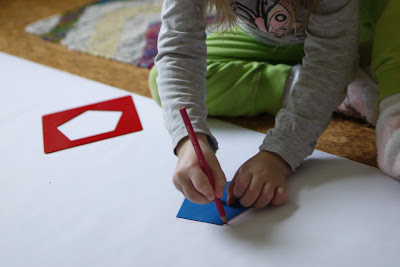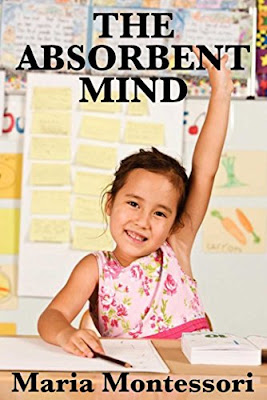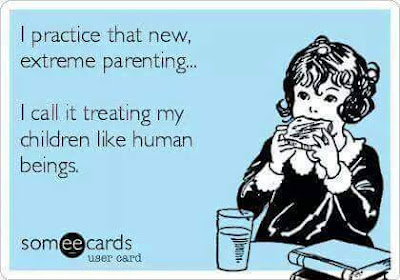Book Review: The Discipline Book
And another book is done, more or less.
The Discipline Book I had bought already a year ago, because I wanted to read something from Dr. Sears (who is like the main promoter of Attachment Parenting), and for some reason I chose this one (his most popular book probably is The Baby Book or The Attachment Parenting Book). Maybe, because it talks more about actual raising of the children - how to do it, how to have well-behaved children and deal with discipline problems, not only about the infant care and attachment parenting as such.
Now I reread it, and I loved it, once again.
It just makes sense. The main thought, that goes through the book, is that if you raise your child the attachment way, if you are connected to your child from the very beginning and respond sensitively to all her needs, especially in the first year of life (which is of major importance, influencing the child for the rest of his life, and how he will turn out) - then you pretty much for sure will have a well-behaved child, not much of discipline problems, as you will know your child, you will be connected and understand him.
In the book they mention three main approaches to discipline (and what is discipline? It's not just the way you respond to a bad behavior, it's more how you promote the good behavior, and can't anyway be taken out as a separate thing, it's a part from parent-child relationship) - the authoritarian style, the communication style and the behavior modification style. The attachment style takes something from each of those ways, as they all have their pluses and minuses. Yes, you have to communicate to your child, yes, you have to be the authority, and yes, you might need some technics to modify a behavior, but all going through it must first-of-all be the connection and relationship that you have with your child, that is individual and unique.
In reviews about the book I read, that some people said - the authors are not giving any real advice (how to fix bad behavior or discipline problems), they are all the time repeating, that if you will raise your child well.. you will not have any (problems, that is).
In a way I can agree. But it is true as well. :) As they say - if you are having some problems with your child, ask yourself: Why is he acting that way? What is bothering him and how can I help? How can I reconnect to my child, to understand him better? And this is never too late to do, relationships can be fixed, even years on.
In the same time, it's not so bad, because the book is full of actual advice, how to react and act in actual problem situations.
In the way, it's more like an encyclopedia - once the age or the problem arrives, I can look it up and see, what the book says. For now there was point to read only the first half of the book.
So, a lot about it just again and again explains, how to treat a baby, how to stay connected. (Which is good to know, if you don't know it already.) But a really useful chapter was about understanding the one-, two- and three-year-olds. That was pretty much, what I wanted to know.
Because even in this age, when people seem to start having "discipline problems", there actually shouldn't be any - the problem is, that adults don't understand these little toddlers. They expect them to behave like sensefull people. But once you actually understand them.. That they are not doing anything to annoy you on purpose, to misbehave or to manipulate you, that is just the way they are!
Toddlers have to be curious, driven and strong minded! Those are the qualities that keep them going, learning, exploring! Same ones, that cause problems to parents.
But really.. Our job is mainly to prepare the environment for the child, so that he would be as free as possible to explore and learn, so we wouldn't have to say "no" too often.
We will have to say "no" once a while anyway, and that is ok too. It's perfectly fine for the child to learn, that there are limits and restrictions, that there are other people and rules. We have to provide them with those limits, gently and respectfully, and expect them to obey them. We, the parents, have to be the authority figures for the child (which I so much agree with!), because they need to learn to respect the authorities. And - note! - not fear them, but respect them! "Honor thy father and thy mother!" And honor comes from love and respect.
And a big part is understanding the toddlers and what can you expect from a child at a certain age. Because problem appears, when we shout: Don't touch the cat's bowl! And she still touches it.. Even after we have told a 100 times to not to. And she seems so sensefull already, why doesn't she listen?!
The answer is here: Around age 15 months toddlers can begin to follow one-step directions (Go get the ball), by 2 years they can follow two-step directions. Prior to 18 months toddlers seldom follow verbal warnings unless accompanied by action (physically going and removing her hands from the cat's bowl..). By age 2 children can follow most verbal commands without physical help. A one year old baby can understand, that "no" or "stop" means that she should stop, what she is doing, and that is about the limit of her understanding.
People should know this stuff. It would make life so much easier and happier for everyone.
It still doesn't mean that you shouldn't tell to the child: "No! Stop.." You should. Because slowly it sinks in, and that is the beginning of discipline. You should gently and respectfully show the correct, expected behavior, from the very beginning, because how otherways the child would know it?
It's a great book. :) Made me really assured once again of the way we are parenting. It is just so important.. Kinda scary too, all of our actions are of such impact.. they are forming a person! But we just must continue the way we are.. And it will be all good. :)
The Discipline Book I had bought already a year ago, because I wanted to read something from Dr. Sears (who is like the main promoter of Attachment Parenting), and for some reason I chose this one (his most popular book probably is The Baby Book or The Attachment Parenting Book). Maybe, because it talks more about actual raising of the children - how to do it, how to have well-behaved children and deal with discipline problems, not only about the infant care and attachment parenting as such.
Now I reread it, and I loved it, once again.
It just makes sense. The main thought, that goes through the book, is that if you raise your child the attachment way, if you are connected to your child from the very beginning and respond sensitively to all her needs, especially in the first year of life (which is of major importance, influencing the child for the rest of his life, and how he will turn out) - then you pretty much for sure will have a well-behaved child, not much of discipline problems, as you will know your child, you will be connected and understand him.
In the book they mention three main approaches to discipline (and what is discipline? It's not just the way you respond to a bad behavior, it's more how you promote the good behavior, and can't anyway be taken out as a separate thing, it's a part from parent-child relationship) - the authoritarian style, the communication style and the behavior modification style. The attachment style takes something from each of those ways, as they all have their pluses and minuses. Yes, you have to communicate to your child, yes, you have to be the authority, and yes, you might need some technics to modify a behavior, but all going through it must first-of-all be the connection and relationship that you have with your child, that is individual and unique.
In reviews about the book I read, that some people said - the authors are not giving any real advice (how to fix bad behavior or discipline problems), they are all the time repeating, that if you will raise your child well.. you will not have any (problems, that is).
In a way I can agree. But it is true as well. :) As they say - if you are having some problems with your child, ask yourself: Why is he acting that way? What is bothering him and how can I help? How can I reconnect to my child, to understand him better? And this is never too late to do, relationships can be fixed, even years on.
In the same time, it's not so bad, because the book is full of actual advice, how to react and act in actual problem situations.
In the way, it's more like an encyclopedia - once the age or the problem arrives, I can look it up and see, what the book says. For now there was point to read only the first half of the book.
So, a lot about it just again and again explains, how to treat a baby, how to stay connected. (Which is good to know, if you don't know it already.) But a really useful chapter was about understanding the one-, two- and three-year-olds. That was pretty much, what I wanted to know.
Because even in this age, when people seem to start having "discipline problems", there actually shouldn't be any - the problem is, that adults don't understand these little toddlers. They expect them to behave like sensefull people. But once you actually understand them.. That they are not doing anything to annoy you on purpose, to misbehave or to manipulate you, that is just the way they are!
Toddlers have to be curious, driven and strong minded! Those are the qualities that keep them going, learning, exploring! Same ones, that cause problems to parents.
But really.. Our job is mainly to prepare the environment for the child, so that he would be as free as possible to explore and learn, so we wouldn't have to say "no" too often.
We will have to say "no" once a while anyway, and that is ok too. It's perfectly fine for the child to learn, that there are limits and restrictions, that there are other people and rules. We have to provide them with those limits, gently and respectfully, and expect them to obey them. We, the parents, have to be the authority figures for the child (which I so much agree with!), because they need to learn to respect the authorities. And - note! - not fear them, but respect them! "Honor thy father and thy mother!" And honor comes from love and respect.
And a big part is understanding the toddlers and what can you expect from a child at a certain age. Because problem appears, when we shout: Don't touch the cat's bowl! And she still touches it.. Even after we have told a 100 times to not to. And she seems so sensefull already, why doesn't she listen?!
The answer is here: Around age 15 months toddlers can begin to follow one-step directions (Go get the ball), by 2 years they can follow two-step directions. Prior to 18 months toddlers seldom follow verbal warnings unless accompanied by action (physically going and removing her hands from the cat's bowl..). By age 2 children can follow most verbal commands without physical help. A one year old baby can understand, that "no" or "stop" means that she should stop, what she is doing, and that is about the limit of her understanding.
People should know this stuff. It would make life so much easier and happier for everyone.
It still doesn't mean that you shouldn't tell to the child: "No! Stop.." You should. Because slowly it sinks in, and that is the beginning of discipline. You should gently and respectfully show the correct, expected behavior, from the very beginning, because how otherways the child would know it?
It's a great book. :) Made me really assured once again of the way we are parenting. It is just so important.. Kinda scary too, all of our actions are of such impact.. they are forming a person! But we just must continue the way we are.. And it will be all good. :)






Comments
Post a Comment